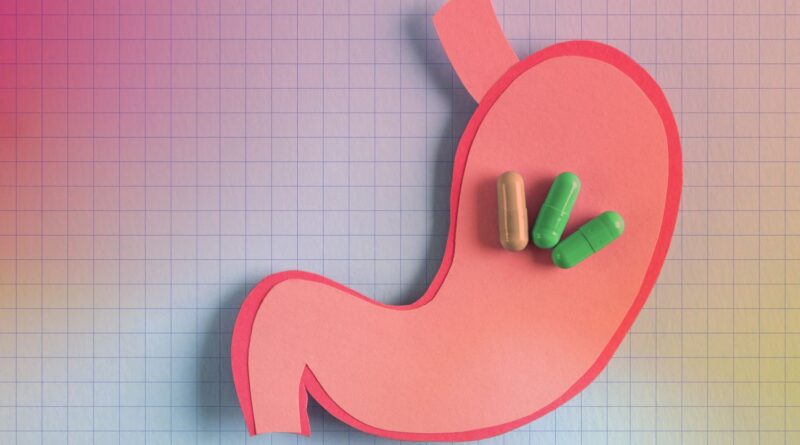5 supplements that may make a cold worse, according to experts
Constipation is often related to diet and lifestyle, but it can also be caused by supplements and other medications. Whether it’s a vitamin, mineral or even herbal supplement, some can do more harm than good for a healthy gut. Instead of relying on unregulated (and often expensive) supplements, commit to a diet that prioritizes whole, nutrient-dense foods. Nutrients like fiber in food—along with plenty of water—can help keep things moving naturally, and help support your overall health.
We talked to experts to get the scoop on which supplements you want to avoid if you have constipation.
5 Supplements That May Make It Worse
1. Calcium supplements
Kerry Conlon, MS, RD, a digestive nutritionist, says: “I’ve had several clients complain of constipation, and after some testing, I I found that the source of their constipation was their calcium supplementation.”
Calcium supplements can make constipation worse because they slow down intestinal motility, which is the scientific way of telling how food moves through your digestive tract. Calcium can also interfere with how excess fluid is removed from the intestines, making stools harder, drier, and more difficult to pass.
If you supplement with high levels of calcium and don’t drink enough water or eat enough fiber, you may experience constipation. “Of course, there are situations where supplementation may be necessary, such as calcium supplementation for osteoporosis, so talk to your doctor and dietician to see if it’s right for you.” what options you can choose,” suggests Conlon.
2. Metal tools
Iron supplements often cause constipation, so if you’re iron deficient, you may want to consider a weight-based diet first.
“Although it is true that about 40% of women of childbearing age are deficient in iron, I would be careful before going into an iron supplement. Iron is one of the -the main supplements that can cause constipation, “says Dr. Ashley Dwyer, Pharm.D., founder of BDN Coaching. Instead, Dwyer recommends increasing your intake of foods rich in iron (such as legumes, leafy vegetables, fish and red meat) and vitamin C (such as citrus, fruits, leafy vegetables and pepper).
“Ferrous sulfate is the most common iron supplement you’ll find in stores. Taking this type of iron supplement on an empty stomach or in high doses can lead to constipation,” Rhyan Geiger, RDN, an expert in food based in Phoenix, he says. EatingWell. If you must take an iron supplement, try taking it with food and consider dividing it into small doses throughout the day.
3. Fiber Supplements
Believe it or not, fiber supplements can worsen diarrhea in some people depending on the situation.
“Based on recent research, fiber appears to help many healthy adults, and is one of the leading treatments for constipation,” says Kelsey Costa, MS, RDN. , a registered dietitian and science commentator at Examine.
“However, increasing fiber alone or using supplements may not always help with bowel movements, depending on the underlying cause of constipation,” Costa adds.
“Fiber supplements can significantly increase stool volume and cause constipation, especially supplements high in insoluble fiber,” says Geiger. Eating too much fiber too quickly can also make the ulcer worse. “Fiber absorbs water in the digestive tract, so if you consume a lot of fiber without increasing your water intake, the stools can be harder and more aggravating,” Costa says. EatingWell.
4. Vitamin D Supplements
When vitamin D is used regularly in high doses, vitamin D supplements can lead to digestive problems such as constipation. Too much vitamin D can increase the amount of calcium circulating in your blood, and as we mentioned above, too much calcium in the body can also make constipation worse.
If you take a vitamin D supplement, talk to your doctor or nutritionist to make sure your dose is right for you. Make sure you drink plenty of water and eat a variety of nutrient-dense foods to support a healthy gut.
5. Senna
Senna is an herbal supplement used to treat constipation due to its strong laxative effect. However, it can cause digestive problems and worsen ulceration if used regularly.
“Like many other laxatives, long-term or excessive use of senna can lead to serious consequences and side effects, including dependence on laxatives, chronic constipation and loss of function. normal bowel,” says Costa. “This seems to happen because the intestines are used to stimulation and lose their ability to contract normally without it,” he adds.
Relying on senna can also cause fluid loss and electrolyte imbalances, “which can lead to dehydration and can contribute to constipation when not used,” Costa says. EatingWell.
Other Ways to Help Reduce Begging
There are several things you can do to relieve constipation and support gut health instead of relying on supplements. Habits like eating more fiber, drinking more water and getting more exercise can all help relieve constipation.
Eat a variety of whole, nutrient-dense foods including fruits, vegetables, whole grains, and fermented foods that contain probiotics such as miso, kefir, kimchi, and sauerkraut. Conlon says: “Fruits, vegetables and whole grains contain fiber that supports digestion. These foods also provide a wide range of other important nutrients and bioactive compounds, including essential vitamins, minerals, phytochemicals and antioxidants, which support our overall health.
Research suggests that regular exercise should be part of constipation treatment. Try to incorporate more movement into your day in any way possible, be it walking, yoga, cycling or something else you enjoy and you may find yourself sticking.
The Bottom Line
Constipation is often affected by diet, lifestyle and other supplements and medications. Experts recommend a diet first before turning to expensive and unregulated supplements. In fact, some supplements such as calcium, iron, vitamin D and senna may worsen constipation symptoms. Although fiber often helps to improve it, fiber supplements may make constipation worse if you increase your intake too quickly and don’t drink enough water. To help relieve constipation, try to eat more food, drink more water and stay active.
#supplements #cold #worse #experts
